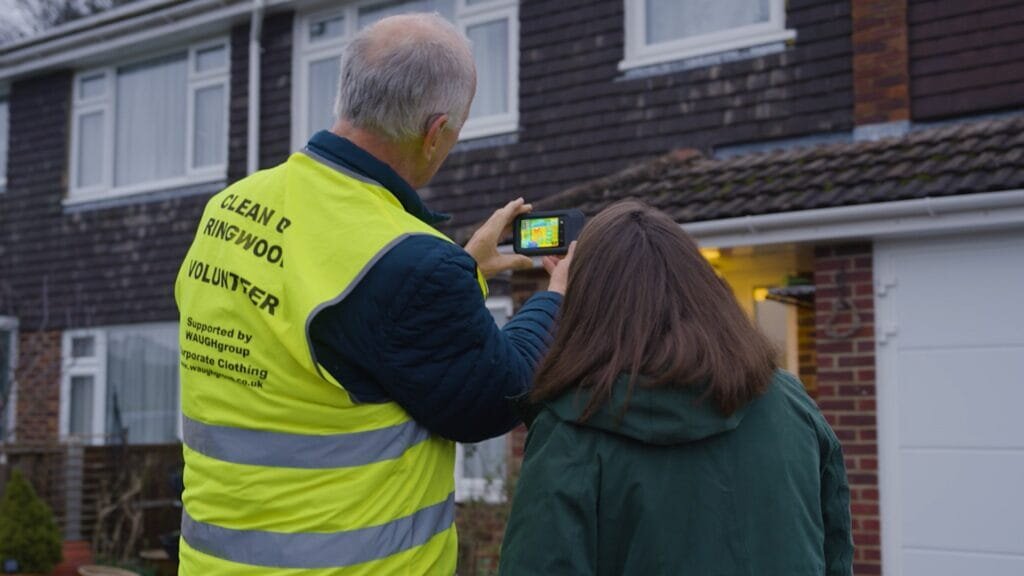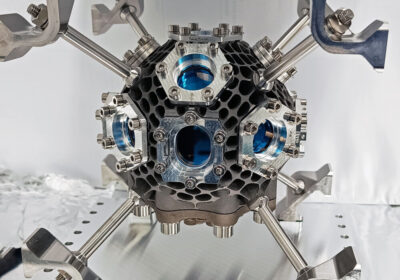FLIR C5 Compact Thermal Imaging Camera: Greening Campaign’s Tool For Energy-Efficient Homes
Challenge
The Greening Campaign, founded by Terena Plowright, has set its sights on an ambitious goal: to make the entire United Kingdom greener, one community at a time. This initiative seeks to address a pressing concern—the widespread lack of awareness about the importance of energy efficiency within homes.
According to Citizen’s Advice, the average UK home loses approximately £350 each year due to poor insulation. This loss escalates to as much as £951 annually for the least efficient homes. These figures show the significant financial impact of energy inefficiency on homeowners across the country.
Complicating the situation further is the fact that many of the critical areas where heat loss occurs are invisible to the naked eye. This challenge requires the use of specialized equipment capable of detecting and addressing these elusive energy leaks. Given that the Greening Campaign operates primarily through the efforts of volunteers, the tool needs to be not only effective but also user-friendly.
Solution
Recognizing the need for an accessible tool to identify and demonstrate energy inefficiency, the Greening Campaign selected the FLIR C5 compact thermal camera for its user-friendly design. Terena explained, “When we were looking at the camera, we were thinking about, ‘What would people be confident to use?’ We chose the FLIR C5 because it resembles a mobile phone.”
Colin, a volunteer for the Greening Campaign and a surveyor, shared his excitement about the potential of thermal imaging to reveal numerous solutions to energy loss problems; ‘’It was fascinating to hear how many answers there are to the problems people have of energy loss through losing heat. I, personally, as a surveyor was fascinated to see what results we’d get from using a thermal camera.’’
The FLIR C5 cameras were distributed to community members, enabling them to visually detect where heat was escaping from their homes, thereby making the invisible, visible.
Colin gives details on his and the volunteers first outing with the thermal cameras, ‘’We went out to our first few, very much, as amateurs. We played around with the cameras—it took around half an hour, and that’s all, to understand it.’’

Results
Volunteers equipped with thermal cameras, have been able to demonstrate the tangible benefits of energy efficiency to homeowners in a visually impactful way. Terena shares the positive effect of making it easier for people to understand and address heat loss issues: “When you’re telling people about energy loss, it’s very difficult to get them to really see that, but when you’ve got it in technicolor, right in front of them, they really understand where that heat loss is.
“And this is the beauty of these cameras; you can see where roof insulation has even the smallest gaps—it will show through.”
Kirsty, a community member, explains her experience with the initiative: “Everyone was really friendly; we looked at every window and door together, picked out areas that I might not have noticed—it was really beneficial to do. I’m definitely concerned about reducing my carbon footprint.” She also highlights some simple answers to heat loss: “Little things like draft excluders—everyone can use those, shutting the curtains early, keeping all the heat in—and it doesn’t have to cost a lot.”
Moreover, the campaign has created a ripple effect, with more than 200 communities now equipped to pass on their knowledge and experiences to others. This grassroots movement, powered by the dedication of volunteers and the innovative use of FLIR thermal cameras, is creating a patchwork of energy-efficient communities. As Colin put it, “What each of us can do—we’re a drop in the ocean, but, actually, all together, we are that ocean; we can make those changes.”
The success of the Greening Campaign underscores the power of community engagement, accessible technology, and hands-on education in driving significant environmental change. It’s a compelling model for how local actions can contribute to global solutions, one community at a time.







